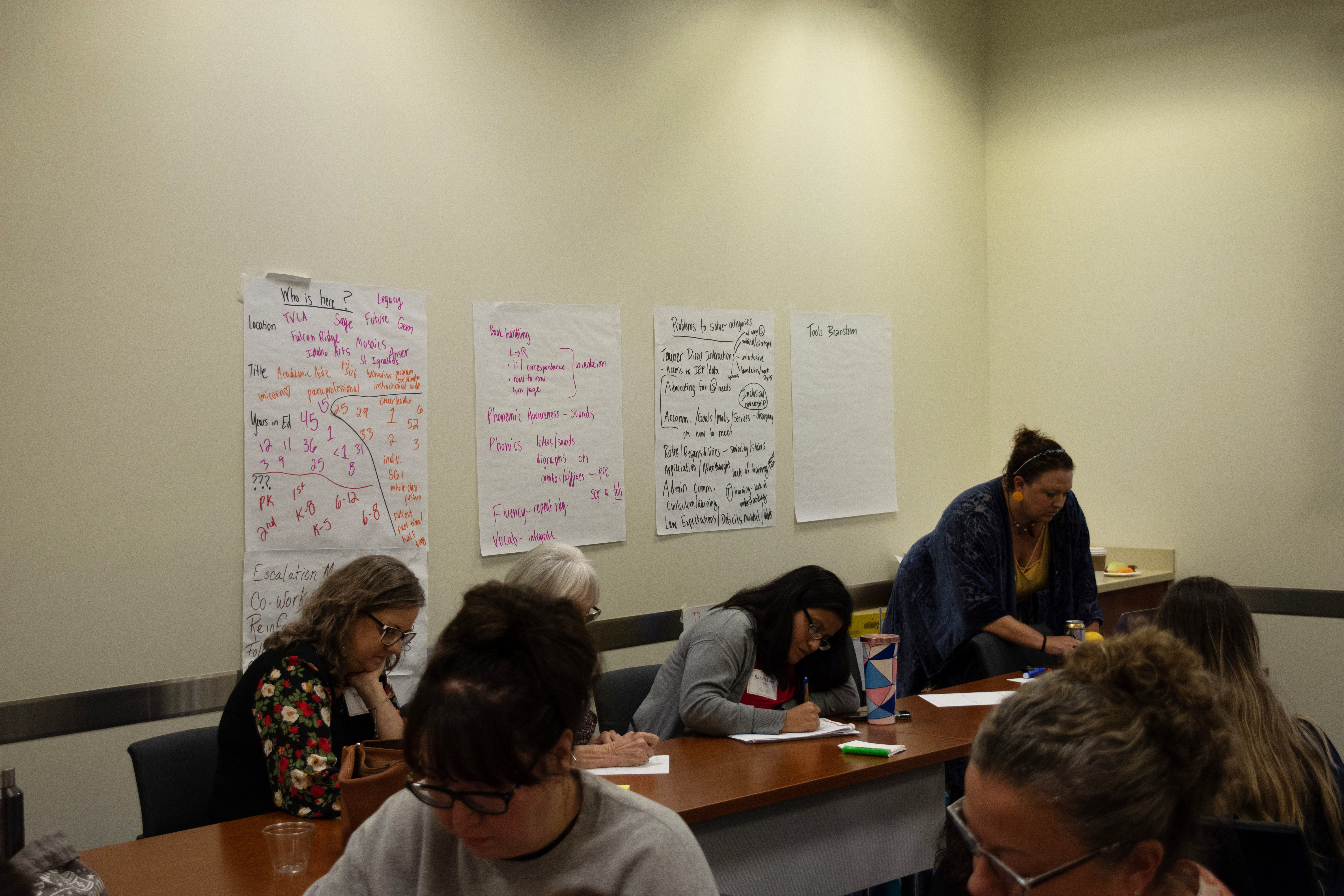
Bluum’s Inaugural Paraprofessional Training Summit
By Sarah Meskin
In K-12 education’s ever-evolving landscape, the role of paraprofessionals has become increasingly more vital, especially following the stress of the COVID pandemic. Providing personalized support to students for their success is the main goal of paraprofessionals. Bluum held its first Paraprofessional Training Summit at Boise State University earlier this month to recognize the importance of empowering these hard-working front-line education professionals. The summit brought together a diverse group of 70 paraprofessionals from Idaho public charter schools, traditional district schools, and private schools.
Expertise and insights were shared from several distinguished speakers to address the need for enhanced training and resources in our schools. The training summit was a full-day event that encompassed a series of workshops, interactive sessions, and keynote presentations. The participation of board-certified behavioral analysts, professionals with advanced degrees in Educational Leadership and Special Education, Autism Specialists, along with Instructional Consultants, brought forth a shared passion for driving positive changes in education.
The day started off with a keynote presentation by Sammy Christensen and Laura Gaylord, who spoke about the importance of relationships. Christensen is an expert motivator, school administrator, special educator, coach of champions and a former professional baseball player. Gaylord is a paraprofessional who works for the West Ada School District.
As American Educator John Dewey said, “The deepest urge in human nature is the desire to be important.” Christensen builds on this insight to argue for the importance of feeling connected, whether that may be socially, emotionally, spiritually or professionally. In order to feel some sense of importance, individuals need to feel like they belong. As a paraprofessional, it is their personal connection with students that creates the climate for classroom success. Education happens best when students feel connected to the people around them.
One of the central themes during the summit revolved around fostering inclusion and emphasizing how important it is that students of all abilities have the same access to resources and opportunities. By providing students equal access, they are able to thrive in specific learning environments for a variety of reasons, whether that be language based, having extra help if needed, feeling emotionally safe or simply having their progress tracked and sent to parents.
Dr. Lisa Beymer, who holds advanced degrees in Educational Leadership and Special Education, emphasized the profound significance of this concept. Beymer highlighted throughout her talk that “inclusion should not merely be viewed as a procedure or practice but as a holistic approach, a transformative process and a culture that is in celebration of the unique abilities of every student.”
This mindset entails valuing and embracing students of all backgrounds and abilities, ensuring that they feel like valued members of the school community. Throughout Beymers presentation, she underscored the importance of effective communication and prioritizing the students’ overall well-being.
Based on feedback from participants and comments shared with us, our first Paraprofessional Training Summit was an overall success. It marked a significant step towards improving educational support for paraprofessionals in Idaho. The summit left attendees not only inspired, but better equipped to serve their students. Investing in the growth of paraprofessionals will ultimately translate into an overall better educational experience for students of all backgrounds and abilities.
–



